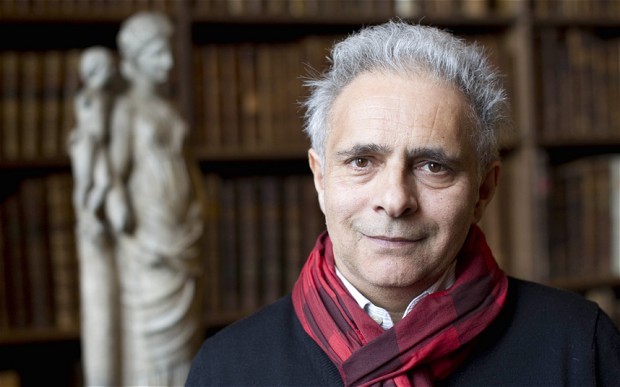

Dear all,
I’m in the process of reading Hanif Kureishi’s new book and am thoroughly enjoying it.
It’s a very entertaining story: a young writer is commissioned to write a biography of a famous, ageing, Indian-born writer (Mamoon Azam); to do this he goes to stay at the writer’s house in the English countryside. The writer’s wife, a flamboyant Italian woman, presides over the household and is fiercely protective of her ‘genius husband’. The couple think they are controlling the project, generating useful publicity and developing ‘Brand Mamoon’, but the writer and his publisher are more interested in writing up a rather more sensational story.
The Last Word is a thoughtful reflection on art and artist, identity and intellect -- and it is also sharply amusing. Another thing that makes it interesting is all the speculation it has generated that the character of the famous writer is modelled on V. S. Naipaul, and the character of the wife on Nadira Naipaul (formerly the flamboyant Pakistani columnist Nadira). On this basis one could speculate that the character of the biographer is based on Patrick French, who some years ago did a biography of Naipaul. But all the speculation is slightly pointless as it doesn’t really make much difference to the novel, and it also tends to ignore the fact that this book is a wonderful example of Kureishi’s prose style: simple, clear sentences, sharp observations, and a lot of intellectual philosophical thought underpinning the unpretentious sentences.
Hanif Kureishi, who shot to fame in the mid 1980s with his screenplay My Beautiful Laundrette, has continued to shock and surprise through out his career. In Laundrette, Kureishi looked at various taboo subjects in terms of sex and race: Omar is in love with his childhood friend Johnny, a former skinhead from South London, and Omar’s cousin Tanya, a nice Pakistani girl from an affluent family, yearns to break free of her suffocating life. Omar’s uncle, a well-off businessman, has several memorable lines in the film, the best being his response to Johnny when he is evicting black and Asian tenants from his properties: "I’m not a professional Pakistani -- I’m a professional businessman!"
My Son the Fanatic was another story that portrayed generational conflict brilliantly. The father, a taxi driver, an immigrant from Pakistan who likes to listen to jazz and drink alcohol is astonished to see his British (born and-bred) son become a born-again Muslim and get heavily involved with a mosque group.
There have been other stories too with similar shock value: The Buddha of Suburbia, Intimacy, The Mother etc. etc. but Kureishi is able to shock because he deliberately chooses to not ignore sex, but instead shows it as a key part of his characters’ stories.
I honestly rate Hanif Kureishi as an outstanding British writer. He was such an angry young man in his youth but now TV interviews show that he has morphed into a grouchy old man, a dissident who calls a spade a spade.
But grouchy or not, Hanif Kureishi really has had a pulse on the changing face of British society. He’s not a ‘professional Pakistani’, he’s just a professional writer and one who has remained true to his art no matter what the pressures.
Kureishi’s critics can say what they want but I truly think it’s he who will have the last word.
Best wishes